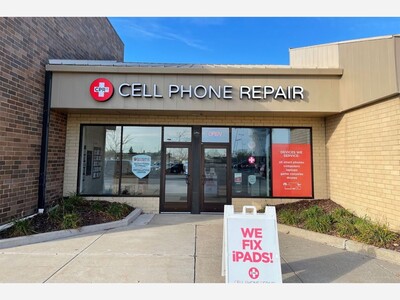How One Word In Minnesota Law Is Preventing People With Mental Illness From Getting Help
How One Word In Minnesota Law Is Preventing People With Mental Illness From Getting Help
A family desperate to help their loved one get treatment for a mental illness was surprised to discover resistance from one part of the system they know well: law enforcement.
Everyone in the family is a first responder or retired police officer – even the 63-year-old man they’re trying to help. 5 INVESTIGATES is not identifying him because he is a vulnerable adult.
For months, Julie Weflen and her son Shaun have tried to get Shaun’s father to a hospital to be treated for an undiagnosed mental illness. He wouldn’t go on his own or with family members.
The events that unfolded over the last six months raise serious questions about law enforcement’s role in transporting mentally ill people who are court-ordered into treatment.
In this case, the family turned to law enforcement, who have the legal authority to take a mentally ill individual into custody and transport them to a treatment facility.
But police records show repeated resistance from the Golden Valley Police Department to take Shaun’s father to get help, despite a documented history of mental health issues, a violent altercation with family members and a civil commitment order.
Half a dozen mental health professionals who spoke with 5 INVESTIGATES say this is a growing problem in Minnesota that ultimately leaves vulnerable people in the community without support.
His history
Shaun first knew something was wrong last summer when he learned his father had stopped paying his bills and had gone into foreclosure.
Since that time, he’s documented an alarming decline in his dad’s mental state. His father, a former Minneapolis police officer, believes it’s 2002 and that he is still on the force.
Shaun said he put super glue in his ears to stop the voices he was hearing.
“The medical professionals are saying he needs help,” Shaun said, who has sought the assistance of a county caseworker and Hennepin County’s crisis team, COPE.
After concerns over his dad’s safety, Shaun filed and received an Extreme Risk Protection Order giving police permission to take away any guns.
“He still has at least one service weapon in his possession,” Shaun said.
A week after the order was finalized, Shaun and his mother made a plan to go to the home with police and with mental health professionals.
The altercation
When the family arrived at the Golden Valley house on November 1st, police weren’t there.
Shaun’s father became upset and started to fight them. Shaun says his dad bit his finger and broke it. His brother called 911.
“My son is in a chokehold,” Julie said. “He’s being strangled and we’re fighting, and I’ve got no backup.”
Body worn camera video obtained by 5 INVESTIGATES shows the arrival of a Hennepin County deputy who begins to separate the family members.
As more officers arrive, Shaun’s father tries to tell them they can’t detain him because he’s a police officer.
“You are not a police officer,” the deputy is heard saying. “You were a police officer. You’re retired.”
Crisis responders, who were at the scene during the altercation, according to Shaun, wrote an emergency hold order citing the 63-year-old’s aggressive behavior.
“I completely agree with everything on that hold form,” a Golden Valley police officer is heard saying on body camera video. “I’ve been out here three times. He a 100% needs to go to the hospital.”
Other officers disagreed and did not honor the hold.
The Hennepin County deputy told crisis workers at the scene that he would not force Shaun’s father to go.
“He says, ‘I don’t wanna go,’ and then what do I do? I use force on him? And then injure him? And then I get sued?”
The commitment order
The officers told the family the best way to get their father help would be to get a civil commitment order.
In February, a judge civilly committed Shaun’s father, finding the 63-year-old “poses a substantial likelihood of physical harm to self or others.”
Despite being court-ordered into treatment, Golden Valley police still refused to take him to the hospital.
Police chief Virgil Green declined an on-camera interview to talk about that decision, but said in a statement that “there is no legal obligation for officers to transport individuals” who are court-ordered into mental health treatment.
A single word
There is nothing in Minnesota law that requires officers to honor transportation holds that are written by mental health professionals, said Sue Abderholden, executive director of NAMI Minnesota, the state’s largest mental health advocacy organization.
“The statute says the officer ‘may’ provide the transportation personally or may arrange to have the person transported by a suitable medical or mental health transportation provider,” she said in an interview. “So it’s not ‘must’ or ‘shall,’ it’s ‘may.’”
Abderholden said that one word is now being used to justify law enforcement’s refusal to transport people.
She said her office is getting several calls every month from families, crisis workers and others with stories of police declining to take people to treatment.
“I never heard a complaint before they changed the deadly use of force law,” she said, referencing a 2021 legislative change that put strict standards on when police can use force.
“I do think there’s something between voluntarily getting into a vehicle, especially when you don’t think that you’re ill… and deadly force,” Abderholden said.
When asked specifically about why his officers refused to honor the hold the crisis responders wrote, Chief Green said his officers are trained to uphold someone’s civil rights.
“Officers may decline transportation requests when they have legal concerns about the validity of such a request,” he wrote in a statement.
The eviction
Without assistance, Shaun and his mother are unsure what will happen to Shaun’s dad.
The home his father lives in was sold after the foreclosure, and the new owners filed an eviction earlier this month.
The sheriff’s office was supposed to carry out the eviction next week, according to Shaun, who had planned to be at the home with mental health professionals.
But on Thursday, without warning, deputies posted the notice. Shaun said his father left the property and wandered in the city for several hours before they found him.
It’s unclear where he will end up.
Here is a list of suicide prevention and mental health resources:
- 988 Suicide and Crisis Lifeline at 988
- Crisis Text Line – Text MN to 741741 to connect with a trained crisis counselor to receive free, 24/7 crisis support via text message.
- Minnesota Department of Human Service’s adult mental health resources
- The National Alliance on Mental Illness (NAMI) – Minnesota
- Veterans Crisis Line at 988, Option 1 or by texting 838255
- Minnesota Farm and Rural Mental Health Helpline at 833-600-2670 or by texting “FarmStress” to 898211
If you believe someone is at risk of suicide, the U.S. Department of Health and Human Services suggests you:
- Ask questions about whether the individual is having suicidal thoughts.
- Call the U.S. National Suicide Prevention Lifeline at 988 or 1-800-273-TALK (8255).
- Seek help from a medical or mental health professional. If it is an emergency situation, take the person to a hospital.
- Remove any objects from a person’s home that could be potentially used in a suicide.
- Do not leave the person alone, if possible, until help is available.












